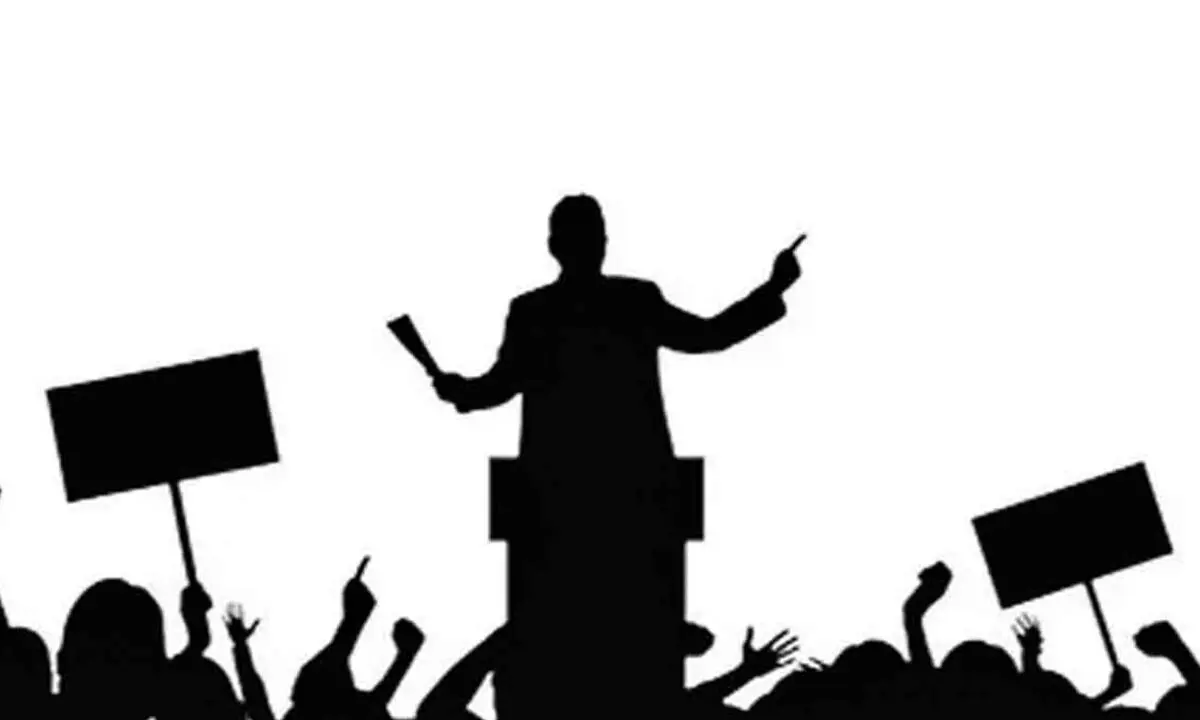Understanding How Social Divides Deepen
Political polarization is not just a political issue; it's a societal challenge that permeates daily lives. The quiet invasion of polarized thought patterns disrupts social cohesion and weakens communal bonds.
The Eroding of Community Ties
The widening ideological gap is silently fraying the threads of community. As individuals increasingly associate with their political affiliations, trust diminishes between community members who do not share similar views. This ideational fragmentation induces a host of challenges. For example, in neighborhoods where diversity of thought once encouraged vibrant discourse, discussions become divisive as political identities become entrenched. The essential element of trust, crucial for collaboration and collective problem-solving, is undermined. The dynamics of community interactions shift, and it becomes increasingly challenging to work towards common goals when political lines are drawn so clearly, affecting local initiatives and making everyday cooperation an endeavor fraught with difficulties.
The Fragmentation of Social Interactions
Beyond just weakening trust, this polarizing drift contributes significantly to social fragmentation. Simple disagreements over local policies can develop into broader ideological battles, affecting relationships even between neighbors. This intensified division manifests in many forms: debates over issues like social justice lead to heightened tensions that weaken a shared sense of community. Everyday interactions start being filtered through a political lens. This shift in perception impacts how people relate to each other, often leading to strained relationships and increased social isolation, driven by the reluctance to engage with contrasting opinions.
Challenges in Decision-Making
In a polarized society, decision-making processes at local and community levels face significant disruption. Political leaders may bypass traditional norms and informal channels might replace structured dialogues, eroding legitimacy and weakening governance structures. This breakdown in established processes causes significant distress within communities as it disrupts the means through which common challenges are typically addressed. The resultant feeling of alienation leads citizens to distrust authorities and disengage from participating in communal resolutions, further breaking down social harmony.
Echo Chambers and Extremism: The Twin Engines of Division
Amidst deepening polarization, echo chambers and political extremism emerge as powerful forces amplifying division. They function in tandem, reinforcing biases and making reconciliation more elusive.
The Comfort and Dangers of Confirmation Bias
Echo chambers, especially prevalent in online environments, intensify divisions by limiting exposure to diverse viewpoints. Algorithms that curate content based on user history create bubbles where like-minded opinions are continually reinforced. This enclosed atmosphere allows confirmation bias to flourish—an environment where individuals only encounter evidence that solidifies their preconceived notions while dismissing contradictory information. Selective exposure entrenches these biases further and seeds the ground for more radical ideologies to flourish as alternative opinions are systematically excluded, fostering an unhealthy cycle of ideologically-reinforced certainty.
Amplification of Extremist Ideologies
Echo chambers serve as fertile breeding grounds for extremist ideas, where radical viewpoints can gain validity and traction unopposed. In these spaces, extreme positions can appear normalized, emboldening individuals to hold increasingly uncompromising stances. This situation emboldens small groups, as the intense clustering of similar opinions gives the false impression that such extremism represents broader societal views. Communities become more divided as individuals within these echo chambers signal loyalty to fringe ideas, leading to an increase in political extremes and decreasing the possibility of constructive dialogues.
Reduced Exposure to Diverse Perspectives
Echo chambers not only elevate extreme voices but also significantly reduce exposure to competing views, leading to a lack of understanding of others' opinions. This gap in perspective fosters intolerance and misconceptions, as individuals begin to regard those outside their echo chamber with suspicion and hostility. The difficulty in engaging in meaningful dialogue around divisive issues exacerbates the divide, promoting an environment where consensus is hard to attain. This kind of insular thinking challenges communal problem-solving, as shared decision-making relies on mutual understanding that becomes elusive within polarized settings.
Media's Role in Amplifying Political Divides
The media’s influence in shaping political discourse is undeniable. It plays a dual role by reflecting the political climate while simultaneously shaping and intensifying it.
The Impact of Partisan Narratives
Media organizations frequently present information through lenses that best fit their audiences' pre-existing beliefs, intentionally or not. This selective framing indicates how issues are portrayed, emphasizing certain aspects while minimizing others, thus reinforcing partisan biases. Such skewed coverage contributes to a distorted understanding of issues among the public. The spotlight on sensationalism, in turn, evokes emotional responses and significantly sways public opinion, deepening the divides it seeks to report on.
Sensationalism and its Emotional Pulls
Journalism that prioritizes sensationalism and emotional appeals over factual reporting can polarize audiences further. Media outlets often target fear or outrage to drive engagement, creating an emotionally charged environment that fosters division instead of clarity. This environment often inflames pre-existent tensions and makes rational discourse challenging. Emphasizing emotional narratives can lead audiences to align tightly with particular ideological perspectives, contributing to entrenched partisanship and making it difficult for polarized sides to find common grounds.
The Proliferation of Ideological Media
The rise of ideologically driven media outlets caters to specific factions, amplifying confirmation biases and intensifying divides. These outlets, by pandering to an established ideological base, avoid presenting balanced perspectives, creating a fragmented information landscape. With audiences consuming media within their political echo chambers, their worldviews become increasingly one-sided and insulated, hindering the ability to engage with differing opinions and promoting polarization.
Navigating Media Landscape
To counter these influences, developing media literacy is paramount. Consumers of news are encouraged to critically evaluate sources and cross-check facts across diverse outlets. Recognizing potential biases and questioning presented narratives can cultivate a more informed perspective. By seeking diverse viewpoints, individuals can become more open to nuanced discussions, paving the way for a more balanced understanding of issues which may reduce the divisiveness engendered by polarization.
In conclusion, addressing political polarization requires a multidimensional approach. Recognizing the profound impact of echo chambers, extremism, and media biases is essential as we strive for a more cohesive, understanding society. By promoting critical engagement and inclusive discourse, societies can work towards bridging divides and restoring community trust.
Q&A
-
What is the role of media influence in exacerbating the ideological divide?
Media influence plays a significant role in widening the ideological divide by often presenting biased perspectives that reinforce existing beliefs. In both the United States and the United Kingdom, media outlets may cater to specific political leanings, creating echo chambers where audiences are exposed predominantly to viewpoints that align with their own. This selective exposure can deepen partisan conflict and inhibit cross-ideological understanding.
-
How do echo chambers contribute to social fragmentation?
Echo chambers contribute to social fragmentation by isolating individuals within homogenous groups that share similar beliefs, reducing exposure to diverse opinions. This isolation can lead to a lack of empathy and understanding across different social and political groups, fostering an environment where political extremism is more likely to flourish. In both countries, this phenomenon can be observed in social media platforms, where algorithms prioritize content that aligns with users' existing views.
-
In what ways can political extremism be a consequence of partisan conflict?
Political extremism can emerge as a consequence of partisan conflict when individuals or groups become disillusioned with mainstream political discourse and seek more radical solutions. The polarization inherent in partisan conflict can push individuals towards more extreme positions as they feel their voices are not adequately represented by moderate or centrist parties. This can result in increased support for fringe movements and heightened tensions within society.
-
Can ideological divides be mitigated, and if so, how?
Mitigating ideological divides requires deliberate efforts to foster dialogue and understanding across different viewpoints. Encouraging media literacy, promoting bipartisan initiatives, and creating platforms for constructive discourse can help bridge these divides. In both the US and the UK, educational programs that emphasize critical thinking and empathy can equip individuals to engage more thoughtfully with opposing perspectives, potentially reducing the intensity of partisan conflict.
-
What impact does social media have on political discourse and ideological divides?
Social media significantly impacts political discourse by amplifying voices and ideas that may not receive attention in traditional media. While this can democratize information dissemination, it also risks entrenching ideological divides by enabling the rapid spread of misinformation and polarizing content. The algorithms used by social media platforms often prioritize engagement over accuracy, which can lead to the proliferation of extreme viewpoints and further deepen societal fragmentation.








